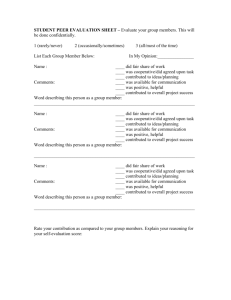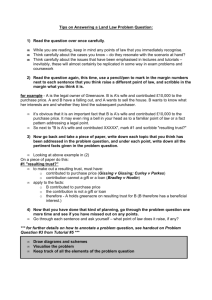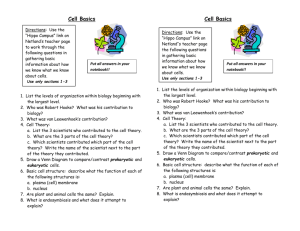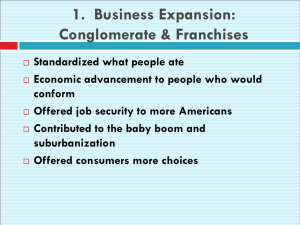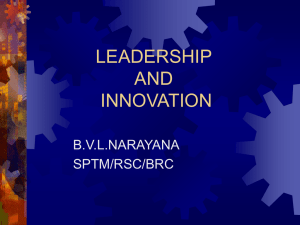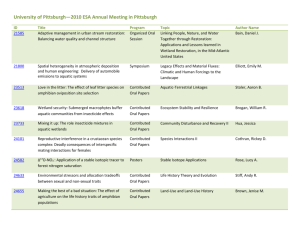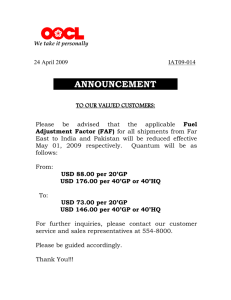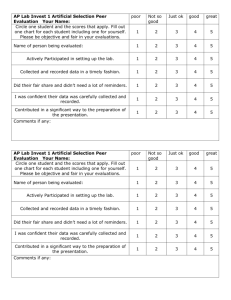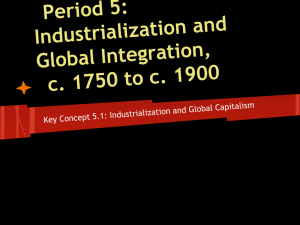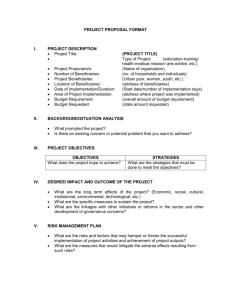MDG-F Joint Programme Final Narrative Report Template
advertisement
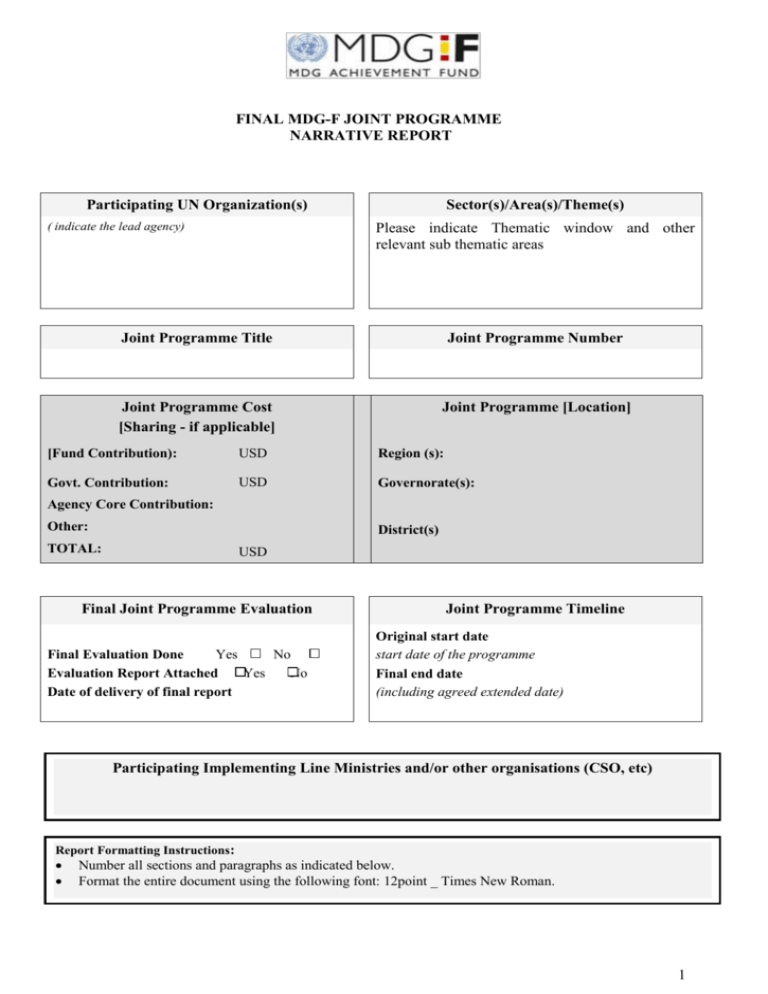
FINAL MDG-F JOINT PROGRAMME NARRATIVE REPORT Participating UN Organization(s) ( indicate the lead agency) Sector(s)/Area(s)/Theme(s) Please indicate Thematic window and other relevant sub thematic areas Joint Programme Title Joint Programme Number Joint Programme Cost [Sharing - if applicable] Joint Programme [Location] [Fund Contribution): USD Region (s): Govt. Contribution: USD Governorate(s): Agency Core Contribution: Other: District(s) TOTAL: USD Final Joint Programme Evaluation Final Evaluation Done Yes No Evaluation Report Attached Yes No Date of delivery of final report Joint Programme Timeline Original start date start date of the programme Final end date (including agreed extended date) Participating Implementing Line Ministries and/or other organisations (CSO, etc) Report Formatting Instructions: Number all sections and paragraphs as indicated below. Format the entire document using the following font: 12point _ Times New Roman. 1 I. PURPOSE a. Provide a brief introduction on the socio economical context and the development problems addressed by the programme. b. List joint programme outcomes and associated outputs as per the final approved version of the joint programme Document or last agreed revision. c. Explain the overall contribution of the joint programme to National Plan and Priorities d. Describe and assess how the programme development partners have jointly contributed to achieve development results II. ASSESSMENT OF JOINT PROGRAMME RESULTS a. Report on the key outcomes achieved and explain any variance in achieved versus planned results. The narrative should be results oriented to present results and illustrate impacts of the pilot at policy level) b. In what way do you feel that the capacities developed during the implementation of the joint programme have contributed to the achievement of the outcomes? c. Report on how outputs have contributed to the achievement of the outcomes based on performance indicators and explain any variance in actual versus planned contributions of these outputs. Highlight any institutional and/ or behavioural changes, including capacity development, amongst beneficiaries/right holders. d. Who are and how have the primary beneficiaries/right holders been engaged in the joint programme implementation? Please disaggregate by relevant category as appropriate for your specific joint programme (e.g. gender, age, etc) e. Describe and assess how the joint programme and its development partners have addressed issues of social, cultural, political and economic inequalities during the implementation phase of the programme: a. To what extent and in which capacities have socially excluded populations been involved throughout this programme? b. Has the programme contributed to increasing the decision making power of excluded groups vis-a-vis policies that affect their lives? Has there been an increase in dialogue and participation of these groups with local and national governments in relation to these policies? c. Has the programme and it development partners strengthened the organization of citizen and civil society groups so that they are better placed to advocate for their rights? If so how? Please give concrete examples. d. To what extent has the programme (whether through local or national level interventions) contributed to improving the lives of socially excluded groups? e. Describe the extent of the contribution of the joint programme to the following categories of results: a. Paris Declaration Principles Leadership of national and local governmental institutions Involvement of CSO and citizens Alignment and harmonization Innovative elements in mutual accountability (justify why these elements are innovative) b. Delivering as One Role of Resident Coordinator Office and synergies with other MDG-F joint programmes 2 III. Innovative elements in harmonization of procedures and managerial practices (justify why these elements are innovative) Joint United Nations formulation, planning and management GOOD PRACTICES AND LESSONS LEARNED a. Report key lessons learned and good practices that would facilitate future joint programme design and implementation b. Report on any innovative development approaches as a result of joint programme implementation c. Indicate key constraints including delays (if any) during programme implementation a. Internal to the joint programme b. External to the joint programme c. Main mitigation actions implemented to overcome these constraints d. Describe and assess how the monitoring and evaluation function has contributed to the: a. Improvement in programme management and the attainment of development results b. Improvement in transparency and mutual accountability c. Increasing national capacities and procedures in M&E and data d. To what extent was the mid-term evaluation process useful to the joint programme? e. Describe and asses how the communication and advocacy functions have contributed to the: a. Improve the sustainability of the joint programme b. Improve the opportunities for scaling up or replication of the joint programme or any of its components c. Providing information to beneficiaries/right holders f. Please report on scalability of the joint programme and/or any of its components a. To what extend has the joint programme assessed and systematized development results with the intention to use as evidence for replication or scaling up the joint programme or any of its components? b. Describe example, if any, of replication or scaling up that are being undertaken c. Describe the joint programme exit strategy and asses how it has improved the sustainability of the joint program IV. FINANCIAL STATUS OF THE JOINT PROGRAMME a. Provide a final financial status of the joint programme in the following categories: 1. Total Approved Budget 2.Total Budget Transferred 3. Total Budget Committed 4.Total Budget Disbursed b. Explain any outstanding balance or variances with the original budget 3 V. OTHER COMMENTS AND/OR ADDITIONAL INFORMATION 4 VI. CERTIFICATION ON OPERATIONAL CLOSURE OF THE PROJECT By signing, Participating United Nations Organizations (PUNO) certify that the project has been operationally completed. PUNO NAME TITLE SIGNATURE DATE 5 VII. ANNEXES 1. List of all document/studies produced by the joint programme 2. List all communication products created by the joint programme 3. Minutes of the final review meeting of the Programme Management Committee and National Steering Committee 4. Final Evaluation Report 5. M&E framework with update final values of indicators 6
